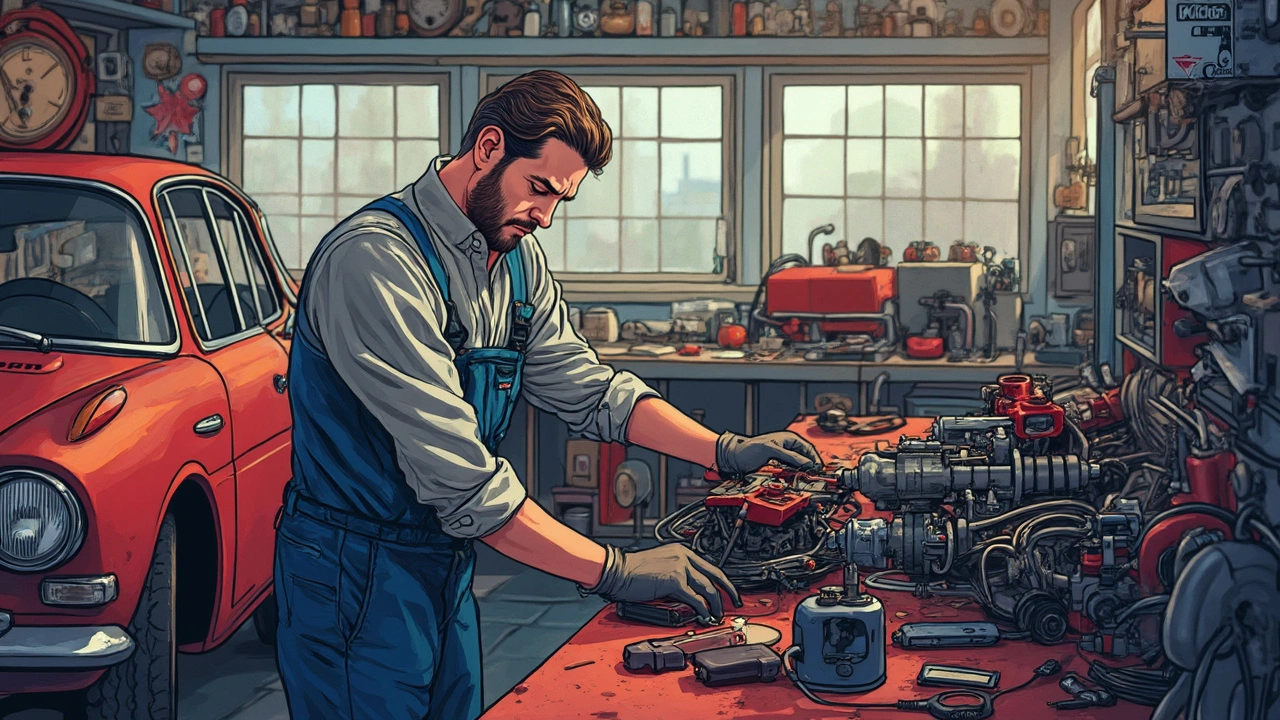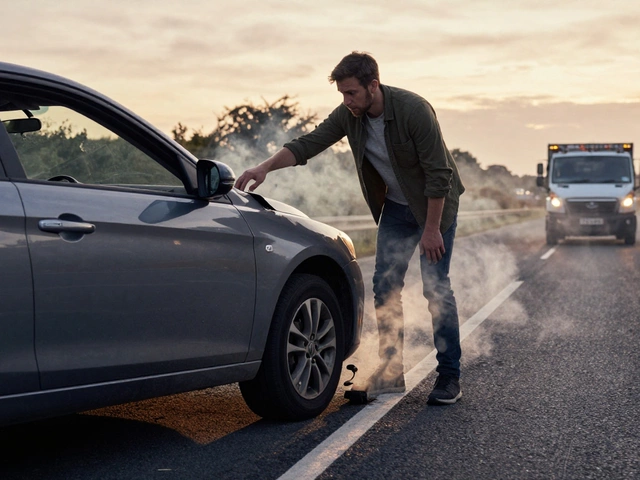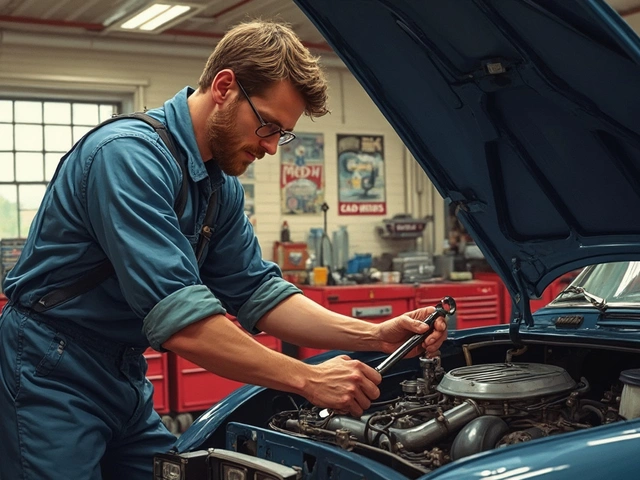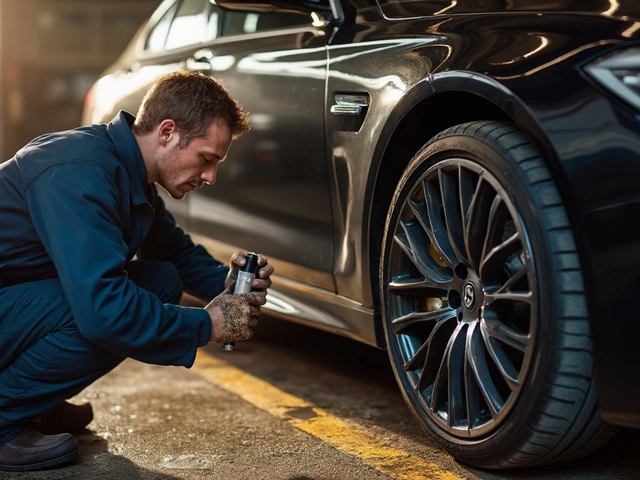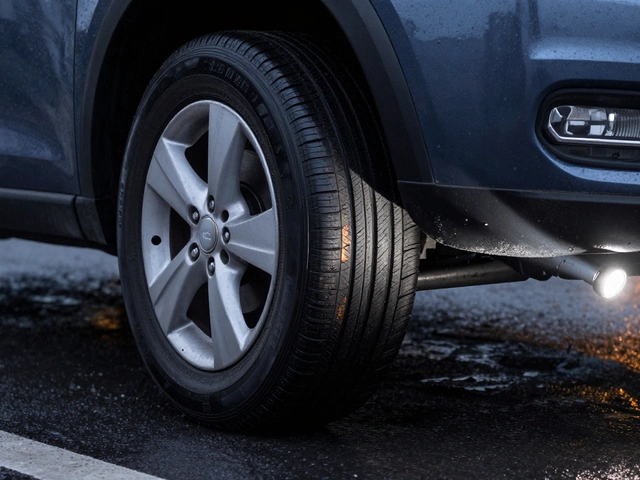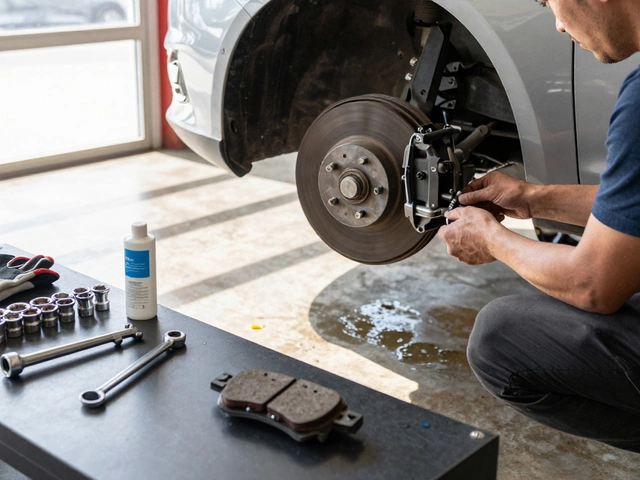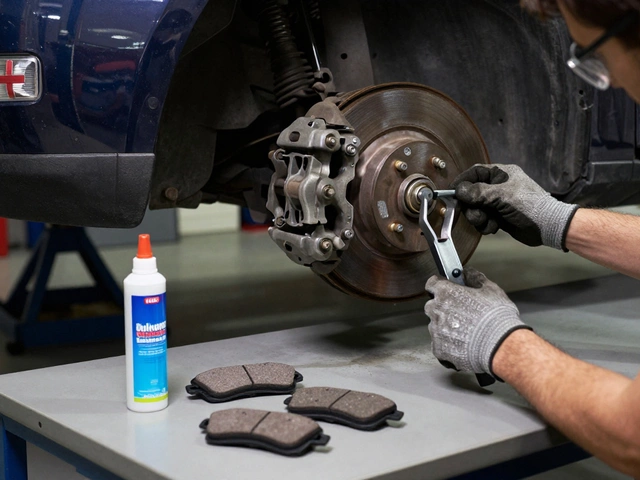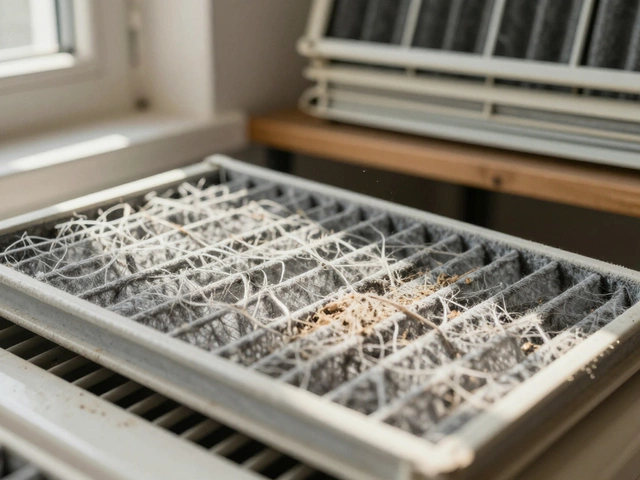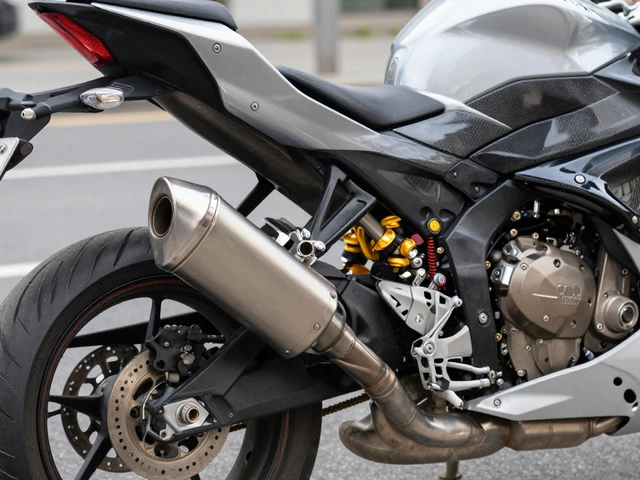So, your car's acting up, and you're thinking it might be the fuel pump. Well, you're not alone. Fuel pumps are one of those parts that don't get much attention until they start causing headaches. Let's dive into why they go bad and what you can do to keep yours running smoothly.
First off, fuel pumps play a big role in keeping your car running by sending fuel from the tank to the engine where it gets burned. Pretty important, right? But like most things, they don't last forever.
Some of the main culprits behind a faulty fuel pump are electrical issues, such as blown fuses or faulty wiring. Contaminated gasoline with debris or rust can also put extra strain on the pump. Plus, if you've been running on empty a bit too often, that can overheat the pump as it relies on the gasoline for cooling. Letting your car sit around with a low tank isn’t doing you any favors either.
But don't worry. By understanding the signs of a failing fuel pump and knowing a few maintenance tips, you can keep your car running smoothly and avoid getting stranded.
- Basics of a Fuel Pump
- Common Problems with Fuel Pumps
- Signs of a Failing Fuel Pump
- Why Fuel Pumps Go Bad
- Prevention and Maintenance Tips
- What to Do When a Fuel Pump Fails
Basics of a Fuel Pump
A fuel pump is like the heart of your vehicle, getting the vital fluid, in this case, gasoline, to where it's needed. Without it, your engine won't get the fuel it needs to run. Simple, right? But how does it all actually work?
Most cars today use an electric in-tank fuel pump. This type of pump sits right in the fuel tank, pushing fuel through the fuel lines to the engine. It maintains the right pressure and flow, so your car runs smoothly and efficiently. Some older cars might still use mechanical fuel pumps, but these are becoming less common.
How Does It Work?
The whole process starts when you turn on your ignition. The fuel pump gets an electrical signal and begins to siphon fuel from the tank. Think of it like a straw slurping up that last bit of soda, but on a grander scale. Fuel is then pushed through a filter—catching any unwanted stuff like dirt or rust—before it travels onward to meet the air in the engine, and bam, you've got combustion.
Why It's Important
Why do we bang on about how vital the fuel pump is? Well, without the proper amount of fuel reaching your engine, your car's performance takes a nosedive. You might start to notice things like misfires, stalls, or even worse, a car that won’t start at all. Yep, not fun.
Some important factors to remember about keeping your fuel pump happy? Regular maintenance and keeping your fuel tank at least a quarter full, which helps cool and lubricate the pump, keeping it in decent shape for longer.
In short, understanding the fuel pump and keeping it in good condition is a small piece of car maintenance that can save you a lot of headaches down the road. Next up, we’ll cover the common problems that start to surface when things go wrong.
Common Problems with Fuel Pumps
Fuel pumps are crucial to your car's performance, and when they start showing issues, it can lead to a whole bunch of trouble. Let's break down some of the most common problems you might encounter.
Electrical Issues
One of the biggest culprits behind a bad fuel pump is electrical failure. Bad wiring or blown fuses can hinder the power supply, which your pump really can't do without. It's like trying to toast bread in an unplugged toaster – not gonna happen.
Fuel Contamination
Your car's fuel system isn't a fan of dirt, rust, or debris. When contaminated fuel comes into play, it can clog the pump and filter, making it work harder or fail altogether. Kind of like drinking through a blocked straw – it's just annoying and ineffective.
Low Fuel Levels
Running on empty isn't just a risk of getting stranded. Your fuel pump uses the gasoline in your tank to stay cool. Low fuel levels mean less cooling, which can lead to overheating and early failure. It's like trying to stay cool during a heatwave without air conditioning – not pleasant.
Wear and Tear Over Time
Nothing lasts forever, and fuel pumps are no exception. Over time, the pump's components wear out. Regular use and age can cause these parts to deteriorate, reducing efficiency or causing a complete breakdown.
Pressure Loss and Leaks
If your fuel pump’s losing pressure or leaking, it can disrupt the flow of fuel to the engine. That's bad news for performance and fuel efficiency. Keep an eye out for strange smells or sudden drops in gas mileage as potential indicators.
Proactive Measures
Want to avoid these problems? Regular maintenance and listening to your car’s warnings is key. Don't ignore the check engine light, and get your vehicle inspected if you notice any changes in its behavior.
Signs of a Failing Fuel Pump
If your car's been acting weird lately, you might want to check that fuel pump. It often gives some hints before it completely shuts down. Recognizing these signs early enough can save you from being stranded.
Engine Sputtering
One of the first things you'll notice with a dodgy fuel pump is engine sputtering, especially when you're driving at higher speeds. The engine might feel like it's hesitating before revving up again. It's a telltale sign that your fuel pump isn't getting fuel to the engine steadily.
Difficulty Starting the Car
Another classic sign is having trouble starting the car. You might turn the key, and instead of that satisfying engine roar, you get nothing but a grinding noise. A failing pump doesn't create the pressure needed to start the engine.
The Car Stalls
Nobody likes this one: you're driving, and then suddenly, the car stalls. It's scary and dangerous. When the fuel pump can't deliver enough fuel to keep the engine running, it leads to an unexpected stall.
Unusual Sounds
Listen out for strange noises. A loud whining or howling sound coming from your fuel tank is a pretty clear indication that something's wrong with the pump. Healthy pumps usually run quietly.
Poor Performance
If you notice your car's acceleration lagging or it’s losing power when climbing hills, it's probably time to check the fuel pump. A healthy engine requires consistent fuel flow, and any disruption messes with performance.
Engine Misfires
Misfires from a cold start or when the engine's under heavy load can also point back to the fuel pump. If fuel doesn’t reach the engine cylinders as expected, one or more may misfire.
Low Fuel Pressure
If you suspect the fuel pump but want to be sure, test the fuel pressure with a gauge. Compare it to the manufacturer's recommendations. Anything off could be a red flag.
Remember, any of these red flags shouldn't be ignored. Catching the problem early might just save you a trip to the mechanic—and some cash.

Why Fuel Pumps Go Bad
Fuel pumps don't just give out on a whim; there's usually a solid reason why they fail. Understanding these causes can help prevent issues down the road. Let's break down the common culprits.
Electrical Failures
One of the biggies is electrical issues. A fuel pump runs on electricity, so things like blown fuses, faulty wiring, or a bad relay can stop it from doing its job. It's like having a lightbulb without a switch; it's not going to turn on.
Contaminated Fuel
There’s also the issue of contaminated gasoline. Believe it or not, debris and rust can sneak in with your fuel and end up blocking the pump. This means the pump has to work harder, which can lead to early failure. Your car's fuel filter helps, but it's not foolproof.
Overheating
Another key reason is that running your car on low fuel quite a bit can cause the pump to overheat. The pump relies on being submerged in gasoline for cooling, so when the tank's close to empty, things can heat up fast.
Wear and Tear
Time's the enemy of all car parts, and the fuel pump is no exception. Just like any other mechanical part, wear and tear are inevitable after years of service, leading to problems over time. Most fuel pumps are built to last around 100,000 miles, but that's not a guarantee.
| Cause | Impact |
|---|---|
| Electrical Issues | Can stop the pump from functioning |
| Contaminated Fuel | Leads to blockages and strain on pump |
| Overheating from Low Fuel | Causes pump to overheat and fail |
| Wear and Tear | Natural degradation over time |
So, what can you do about it? Regular maintenance and paying attention to warning signs can keep your pump in check and save you loads of trouble later. It's all about keeping your car happy and healthy!
Prevention and Maintenance Tips
We all know that prevention is way better than dealing with a broken-down car. Keeping your fuel pump happy is all about good habits and a little bit of know-how. So, let’s dive into some things you can do to keep it running smoothly.
Keep Your Fuel Tank Full
One of the simplest things you can do to extend the life of your fuel pump is to avoid driving on empty. The gas in your tank actually helps keep the pump cool. When you're riding on fumes, there's less fuel to cool the pump, leading to overheating and eventual failure. Make it a habit to fill up when you're at a quarter tank.
Use Quality Fuel
Quality matters, even when it comes to gasoline. Opt for good fuel from reputable stations. Contaminated fuel can clog your pump with dirt and sediments. It might cost a little more, but in the long run, it can save you a lot on repairs.
Regular Fuel Filter Replacement
Fuel filters play a critical role in keeping the fuel pump clean by filtering out debris and impurities. Check your car’s manual for when to replace the filter, but a general rule of thumb is every two years or every 30,000 miles.
Stay on Top of Regular Maintenance
Don't skip those regular check-ups. During a routine service, mechanics can spot potential issues with the electrical components that connect to the fuel system before they become full-blown problems. Catching these issues early can save your pump from burning out.
Avoid Modifications
Some folks love tweaking their rides, but not all mods are friendly to your fuel system. If you’re thinking about modifications that affect fuel transfer or pressure, consult a professional. An improper setup can overload your fuel pump leading to premature failure.
Remove Heavy Loads
Think about it this way: the more weight your vehicle carries, the harder the engine—and by extension, the fuel pump—has to work. Regularly unloading unnecessary weight from your car not only helps the pump but also improves fuel economy!
Need a fun fact to back all this up? A study from the Auto Care Association reveals that 65% of car breakdowns could be prevented with routine maintenance and care. So, keep these tips in mind, and your fuel pump will thank you!
What to Do When a Fuel Pump Fails
Alright, here's the situation: your fuel pump might have given up on you, and you're stuck on the side of the road. Don't panic! There's a few things you can do to handle a failing fuel pump and get back to your day.
Initial Steps to Take
Before you do anything else, make sure your vehicle is safely out of traffic. Put your hazard lights on so other drivers know you're having issues. Once you're safe, it's time to figure out your next move.
- Check the Fuel Level: Sometimes, the gauge might be off, and you might be low on gas. It sounds simple, but it's always worth checking first.
- Listen for the Pump: Turn the ignition to the 'on' position without starting the engine. If the fuel pump is working, you'll hear a faint humming noise from the backseat or the gas tank area for a few seconds.
- Consult Your Manual: Your car’s manual can provide specific guidance based on your vehicle's make and model.
Getting Professional Help
If you've confirmed that the fuel pump is the issue, here are your options moving forward:
- Contact a Tow Service: Having your vehicle towed to a trusted mechanic is the safest way to handle a dead fuel pump.
- Mobile Mechanic: Some mechanics offer on-the-spot help, which can be a lifesaver if you're in a bind.
- Time for Repairs: Replacing a fuel pump typically involves taking out the fuel tank, which isn't something you'd want to do on your own if you're not experienced. However, if you’re a DIY motoring enthusiast, make sure you've got all the necessary tools and safety gear.
Consider Replacement Costs
Wondering about costs? Replacing a fuel pump can range between $400 to $800 depending on your car, so it's something to budget for.
| Vehicle Type | Average Replacement Cost |
|---|---|
| Sedan | $450 |
| SUV | $600 |
| Truck | $750 |
Understanding these options can prepare you for dealing with a fuel pump failure. Staying calm and knowing your steps can make the scenario a bit less stressful, getting you back on the road in no time.
